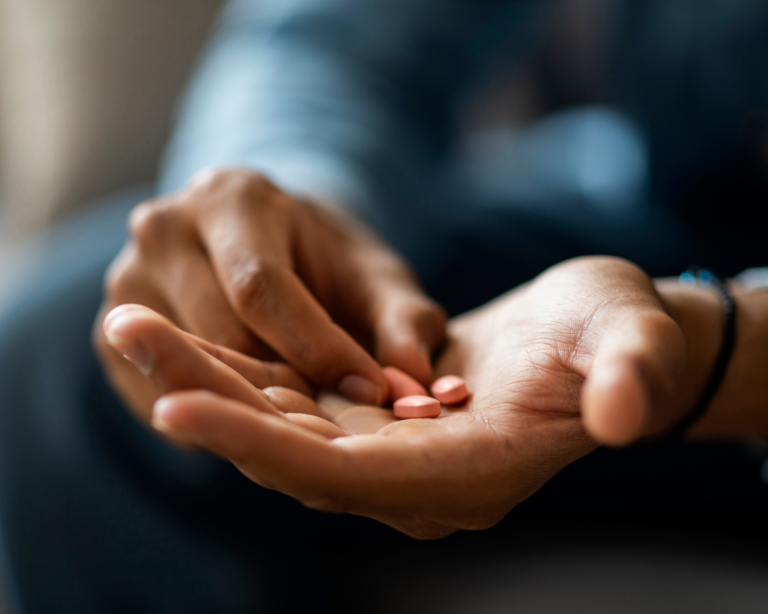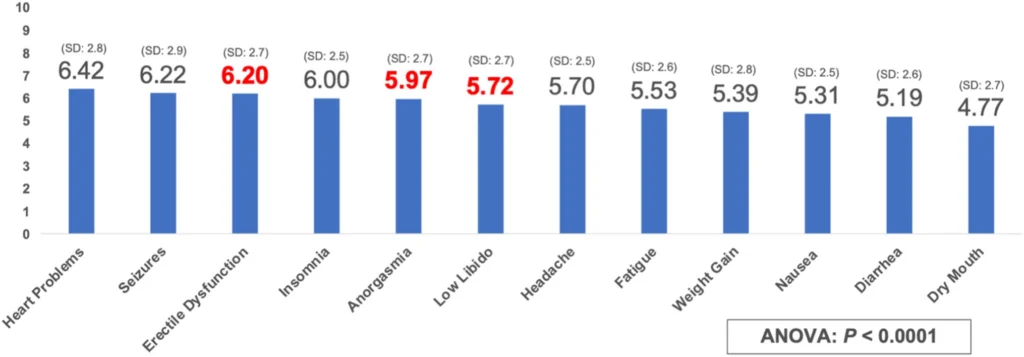Mood Up, Libido Down: When Antidepressants Kill the Mood
Over 70% of men say they would discontinue taking antidepressants if they regularly experienced sexual dysfunction.

Read Time: 2 minutes
Published:
Sexual performance is often deeply tied to male identity, but what happens when a medication essential for mental health threatens that connection?
Depression is one of the most common mental health disorders in America. Growing concerns of male social isolation and emotional disconnection have prompted a deeper examination of how men cope with depression. Men are four times more likely to die by suicide than women. Despite increased visibility, men are still far less likely to seek help for depression or start antidepressant treatment.
In the U.S., a combination of psychotherapy and antidepressants is the most common treatment for depression. Improvement in symptoms can be seen as soon as 6-8 weeks after starting antidepressant medication. About 42.9% of U.S. antidepressant users don’t stick to their medication often due to side effects. For many young men, experiencing sexual side effects can be a key reason why they don’t continue taking their medication (known as non-adherence).
Matthew J. Rabinowitz and colleagues studied 505 men aged 18 to 35 to better understand why young men stop taking antidepressants. To remove bias, participants reviewed side effects from three unnamed antidepressants (representing SSRIs, bupropion, and mirtazapine) and chose the one they’d be most likely to keep taking. They also identified which specific side effects would make them stop treatment.

While serious side effects like heart problems and seizures ranked highest in terms of concern, sexual side effects also played a significant role in non-adherence. Over 70% of men said they would discontinue antidepressant use if they experienced sexual dysfunction weekly. Among these, erectile dysfunction was the most troubling, followed by difficulty reaching orgasm and low libido, both viewed as more disruptive than even insomnia.
Study results suggest that men were significantly more willing to take antidepressants like bupropion (e.g., Wellbutrin) or mirtazapine (e.g., Remaron), which are less likely to cause sexual dysfunction compared to SSRIs (e.g. Lexapro).
SSRIs are the most prescribed class of antidepressants because they have a lower risk of non-sexual side effects, but their link to sexual dysfunction may lead many men to stop taking them. To improve adherence, clinicians can proactively discuss potential sexual side effects and involve patients in treatment decisions that support both mental health and quality of life.



